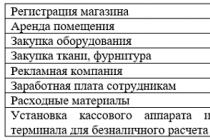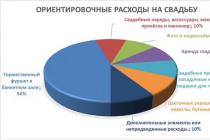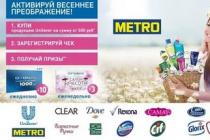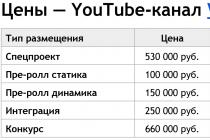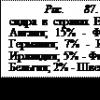What will you learn in the Ad Manager and PR course?
- How to use and evaluate the effectiveness of communication tools in various PR events.
- Develop a strategy and tactics for relationships with local, regional and international media.
- Determine the target and key audience and develop a concept of interaction with it using communication tools.
- Organize special and promotional PR events.
- Corporate "Public Relations": create and manage business reputation organizations.
- Public relations in the field of finance (Organization of thematic seminars and conferences, information campaigns in the financial media).
- Public relations in the field of politics (Develop strategy and tactics for election campaigns).
- Manage crisis and problem situations.
- Develop public relations projects in foreign countries.
Topical questions on the course:
- The course is based on a mixture of theoretical lectures with practical tasks.
- The teacher of the course in the classroom will show examples from his practice on the topic covered, jointly analyze the material covered, and answer all questions.
- Groups consist of 5 to 10 people.
- There are morning, afternoon, evening and weekend-only groups.
- You will get real knowledge and experience under the guidance of a professional!
- All material is given in an accessible language, everyone will learn it, regardless of your level of knowledge!
- You can always change the training time if your plans have changed or go through the missed material with another group.
- The contract can be concluded in the office or by e-mail.
- You can pay by receipt, through a mobile bank, through your organization, at the office: in cash or by bank card.
- You can make an advance payment of 30% of the cost of training, and pay the rest in 2 lessons.
- If after the first lesson you do not like something, we will immediately refund the entire amount paid.
- If you couldn't find desired program on our website, don't worry! Call us and we will solve your questions!
Schedule
Course program
| 1. Fundamentals of communication in public relations. |
| 1.1. Definition of communication. 1.2. Sources of communication. 1.3. Purpose of communication. 1.4. The simplest communication model. Message encoding/decoding. 1.5. The main components of communication: the content of the message (message), the means (channel) of transmission of the message (media and natural communication), the person or source. |
| 2. Influence of means of communication on the process of formation and development of "public relations". |
| 2.1. Definition of the concepts of "public relations" and "means of communication". 2.2. Differences between the terms QMS and media. 2.3. Features of use various kinds communications in SO: strong and weak sides use of each type of communication media in R R-campaigns. 2.3.1. Electronic media: television (standard classical, cable, satellite, HDTV), radio (terrestrial, cable, via the Internet), video media, computers, computer networks and information banks. The use of "internet" in "public relations". Corporate "Web-site". Intranet and Extranet. 2.3.2. Technical media - print, (newspapers, magazines), news agencies, information R-networks, printing and book publishing, telephone and cellular, telegraph, facsimile and paging communication, cinematography. 2.4. The concept of "database of target media". 2.5. Criteria for selection and evaluation of the effectiveness of the use of communication tools for various PR events and programs. 2.6. Types and specialization of mass media. 2.7. Media ratings. 2.8. The concept of communication (mass media) audit. 2.9. Strategy and tactics of relations with local, regional, central and international media. 2.10. The specificity of the use of various types of SC in R R-support of activities public institutions and organizations commercial structures, socio-political organizations and associations. |
| 3. The concept of interaction with the target and key audiences of the public through the means of communication. |
| 3.1. Definition of target and key audiences. 3.2. Types and categories of target audiences. 3.3. Internal audience and external audience. 3.4. Characteristics and specifics of journalists as a key audience. 3.5. Definition of the concepts of "opinion leaders" and interest groups. 3.6. Definition of concepts: economic (business) community, financial community, political environment, socio-cultural environment, clerical environment, professional environment, ecological environment. 3.7. The difference between the concepts of "business communications", "public relations", "public affairs". |
| 4. Practice of using means of communication in public relations. |
| 4.1. The main stages of the evolution of relations with the media. 4.2. Similarities and differences between the concepts of "social meaningful information' and 'news story'. 4.3. Functions and tasks of a PR specialist in working with funds mass media(media relations). 4.4. Differences and similarities in the work of a PR specialist and a press secretary. 4.5. Types of working PR documents used in working with the media, target audiences and their requirements: 4.5.1. Operational working information documents: press release (announcing, interim, final, corporate, hard copy / soft copy), background information (background), press kit, press statement, press interview (face-to-face, absentee, combined, virtual), newsletter (newsletter), quarterly information and analytical report, client application for R R-services (PR-brief), curriculum vitae, press dossier, press clipping, analysis technical reference, refutation article, “crisis response red folder (“Red forlder”)”, invitation to R R-event, printout of databases of target media and audiences, R R-event scenario, questionnaires and questionnaires, photo collections and photo reports. 4.5.2. Image corporate documents: presentation booklet, corporate (company) large-circulation newspaper, booklet "Profile of the company", Annual report, Letter to shareholders, history (chronicle) of the company, biography of senior management, slide video or computer presentation, portfolio. 4.6. Peculiarities of using means of communication in PR-events. |
| 5. Relations with the media ("Media relations"). |
| 5.1. Press conference and briefings. 5.2. Press tours. 5.3. Thematic seminars. 5.4. Thematic press breakfasts and round tables. 5.5. Training on effective relations with the media. 5.6. Monitoring and analysis of thematic materials in the media. 5.7. Information campaigns in the media. 5.8. Contests among journalists. 5.9. Joint promotions with the media on an exclusive basis. 5.10. Opening and maintenance of specialized headings in the media. 5.11. Creation and updating of target mass media databases. |
| 6. Special and promotion PR events. |
| 6.1. Presentations. 6.2. Exhibitions and fairs. 6.3. Festivals, competitions, quizzes, competitions, lotteries. 6.4. Professional seminars and "work-shops". 6.5. Scientific forums and symposia. 6.6. Sponsorship and charity events. 6.7. Semilings (sampling). 6.8. Tastings and product tests. 6.9. Organization and management of "hot lines" for consumers. 6.10. Interactive voting. Direct mail. Mass cultural and entertainment programs. |
| 7. Corporate "public relations": reputation management. |
| 7.1. Creation and strengthening of business reputation. 7.2. Organization and management of work hotline» for staff. 7.3. Organization and holding of annual meetings of shareholders. 7.4. Celebration of anniversaries, anniversaries and "round" dates. 7.5. Organization and holding of "days open doors» and visits to enterprises. 7.6. Production of corporate videos and TV films. 7.7. Staff training for representative function. Conferences of dealers and distributors. |
| 8. Corporate "public relations": reputation management. |
| 8.1. Annual meetings shareholders. 8.2. Specialized thematic seminars and conferences. 8.3. "Business breakfasts" and "round tables". 8.4. Thematic seminars for press secretaries of the financial community. 8.5. Information campaigns and maintenance of headings in the financial media. |
| 9. Public relations in the field of politics. |
| 9.1. Development and implementation of the strategy and tactics of election campaigns. 9.2. Lobbying. 9.3. Meetings with voters and drafting speeches. 9.4. Organization and conduct of political debates. 9.5. Creation and strengthening of a positive reputation. 9.6. Working with opinion leaders. 9.7. Collection of signatures. 9.8. Development of relations with government structures and local governments. |
| 10. Management of crisis and problem situations. |
| 10.1. Development of crisis response programs (product / service - production - manager's reputation - corporate image). 10.2. Natural disasters. Natural disasters. 10.3. Crisis response team training. |
| 11. International "public relations". |
| 11.1. Development and implementation of public relations projects in foreign countries. 11.2. Establishment and development of relations with the international professional PR community. |
| Test. Offset. |
Course description
Now culture, economy, modern society, politics are developing very rapidly, and social relations occupy a very important place in the development of all these areas. It should be noted that the work of a professional PR manager in public relations plays an important role in ensuring the intra-corporate success of an organization. Such a manager must be well versed in the methods of changing the opinion of society in order to bring benefits to the company.In order to carry out his work qualitatively, a PR manager must know how to properly conduct PR campaigns aimed at obtaining new customers, he must be able to hold press conferences, presentations, and more. To successfully work in this position, you need to be well versed in many areas of scientific knowledge. It is required to understand the organization of management activities, the psychology of people's relations, to assess how effective decisions taken, to compose the correct mechanism for motivating the conquest of the heights of success, in addition, one should understand the connection between the subconscious and conscious elements of the psyche.
Learning all this and more is offered by our Advertising and PR (Public Relations) Manager courses. The acquired knowledge will enable applicants to conduct presentations, press conferences, PR campaigns, etc. on their own.
The effectiveness of the teaching methods of this course is ensured by the fact that students take an active part in educational process, new teaching materials. The atmosphere in which classes are held is light and lively, and this contributes to better assimilation of the material.
By holding practical exercises The Advertising Manager course is taught by experienced and professional teachers. After passing the public relations courses, students are issued certificates with which they can work in the development departments of large holdings and companies, in advertising agencies in the specialty "public relations manager", "assistant promotion manager", specialist in public relations, "specialist in the field of PR technologies".
The profession of a public relations specialist or, as they say, PR (PublicRelations), is one of the most sought after in modern society, and this is due to the objective increase in the role of the human factor in our lives. Interested in establishing friendly bilateral relations with the public state structures who need the support and trust of society; private companies seeking to increase the competitiveness of their goods and services; individuals and social groups aiming to improve their image and dreaming of enlisting the support of the media. Professionals who will be able to create and provide efficient work systems of public relations, will become indispensable figures of modern business and politics.
Establishing public relations is an indispensable component of advertising and promotional activities. At present, advertising has become an independent powerful industry, the turnover of which is increasing by 30% annually. The main professional tasks of an advertising specialist are informing the consumer, satisfying and shaping consumer preferences, stimulating demand by creating an advertising product, providing advertising services and conducting advertising campaigns and events.
Specialties and specializations in the field of PR and advertising
Get higher professional education in the field of PR and advertising is possible in universities within the relevant specialties: "Public Relations" and "Advertising". Two-level education in this area is not yet provided for in universities. Education in both specialties in Moscow universities offers many interesting specializations.
In the specialty "Public Relations" in the universities of Moscow, the following specializations are most often found:
- "PR in business (commercial structures)"
- "PR in public administration»
- "Modern press service"
- "Public Relations in the Media"
- "Communication Management"
- “PR in a specific area of the economy, culture, sports, etc.
- "Advertising Management"
- "Copywriting"
- "PR in advertising"
- "Organization of promotional events" or "Event-management"
- "Marketing in Advertising"
- "Mass communications and media planning"
- « Social advertisement»
- "Design in Advertising"
- "Information and computer technologies in advertising"
- "Brand building" or "Brand management"
- "Creativity in advertising"
- Advertising directing.
You can become a good advertising specialist by studying not only in the main specialty at the university in the field of advertising, but also as a specialization in another specialty. For example, at a university you can get a profession in marketing in advertising (specialty "Marketing"), become an advertising manager (specialty "Organization Management"), a design specialist in advertising (specialty "Design"), in commercial advertising (specialty "Commerce"), in public advertising (specialty "Applied Political Science").
What are they studying
A competent PR specialist, a university graduate in the field of public relations, must have knowledge in the field of economics, management and marketing, the skills of a journalist in the field of stylistics and literary editing, master the basics of sociology and psychology, be fluent in modern telecommunications and computer technology speaking in foreign languages.
Education of a worthy professional in the field of advertising at a university is impossible without teaching disciplines from various fields of knowledge: economics, management and law; sociology and psychology (to clarify the features of the perception of advertising and advertising texts); history of art and design (for creative activities); journalism and linguistics (to promote advertising products in the media and the Internet); information and computer technologies.
Where do they work and how much do they earn?
Without effective public relations, no structure can function successfully: neither a state, nor a market, nor a political, nor a public organization. into the sphere professional activity public relations specialist includes PR departments of official and commercial structures, PR agencies, advertising, media, public organizations. The PR Specialist can work in the position of:
− coordinator of promotions (with a salary of 20,000 rubles or more);
− manager of the communication structure (with a salary of 18,000 rubles or more);
Public Relations Manager (with a salary of 40,000 rubles);
− expert, consultant, referent of any structure on mass media and business communication, public relations, humanitarian technologies, scientific, cultural, tourist exchanges.
The sphere of application of knowledge and skills of a university graduate in the field of advertising is the entire environment surrounding the consumer, i.e. any of us, the environment, everything that can be exposed to advertising in order to create an image, priority and consumer preferences, including goods, services, ideas, technologies, securities, real estate, natural resources, etc.
− in specialized marketing communications organizations;
− in research and consulting companies;
− in PR structures, including state ones;
− in other areas of modern information business.
The career of an advertising specialist can develop as follows: advertising agent (salary from 10,000 rubles), assistant advertising manager (salary from 16,000 rubles), advertising manager (salary from 20,000 rubles), advertising director (salary from 35,000 rubles), creative director (salary 75,000-150,000 rubles).
| VSEVED RECOMMENDS | ||
We will call you back!
We will call you back!Fill out the form below, leaving a contact phone number or e-mail, our manager will contact you as soon as possible. Send Enter phone or e-mail.
PR manager (public relations). Courses PR manager
Sign up for a coursePublic Relations Management- this is a great field for building your career. PR courses in Moscow are aimed at expressly teaching students knowledge in the field of public relations. The ability to manage the thoughts and desires of people is useful to any company that sells any services or sells goods. PR can also be applied to ideas and personalities (living people). Political PR occupies a separate training subsystem.
PR courses
PR specialists should not only know their subject, but also have a broad outlook and attentiveness. A broad outlook is important because modern business enough to be taken into account a large number of various indirect factors, and attentiveness allows you to quickly assess the situation and make the right decision.
You will learn how to do this by visiting the courses pr and marketing training. Modern PR managers are an important link in every self-respecting organization, which in many ways is a guarantee successful development in their own market segment. Functional responsibilities PR managers are very versatile - this is the preparation of press releases, writing promotional articles, the development of advertising campaigns, active participation in press conferences and PR events.
Public relations - contemporary activities in management big companies,
focused on establishing common mutually beneficial, harmonious relations
between different players in society: companies, people, politics,
on which the success of the functioning of a particular player depends.
PR manager courses
Upon graduation" PR manager courses" trainees will receive a certificate of the established form and can safely start their career in advertising agencies and also in the advertising and information departments of large companies .
PR courses in Moscow
Course name:
PR management.
Course duration:
The total volume of the course:
Class schedule:
Standard mode of practice:
- Monday, Wednesday, Friday - 4 academic hours each
- Tuesday, Thursday - 4 academic hours each
- Saturday, Sunday - 4 academic hours each
- Monday, Tuesday, Wednesday, Thursday, Friday - 4 academic hours each
- Monday, Wednesday, Friday - 8 academic hours each
- Tuesday, Wednesday - 8 academic hours each
- Saturday, Sunday - 8 academic hours
Group course times:
- morning - from 9-00 to 12-00, from 10-00 to 13-00
- daytime - from 12-00 to 15-00, from 13-00 to 16-00, from 15-00 to 18-00
- evening - from 18-00 to 21-00, 19-00 to 22-00
- weekend groups: Saturday and / or Sunday - from 10-00 to 13-00, from 13-00 to 15-00, from 15-00 to 18-00.
Location of classes:
- in classrooms in Moscow (metro station Arbatskaya, metro station Okhotny Ryad, metro station Pushkinskaya, metro Tverskaya, metro Chistye Prudy, metro Turgenevskaya, metro Sportivnaya, etc.);
- In your city;
- at your company office.
Upcoming course start dates:
Work days:
- Morning - 08-07-2019
- Day - 09-07-2019
- Evening - 09-07-2019
- Saturday and/or Sunday - 13-07-2019
*** Attention! Class start dates are subject to change.
Course cost:
- base price: 11250 rubles.
- discount 10-20%
- individual. training: 25600 rub.
Curriculum of the course:
>1. Fundamentals of communication in public relations.
1.1. Definition of communication.
1.2. Sources of communication.
1.3. Purpose of communication.
1.4. The simplest communication model. Message encoding/decoding.
1.5. The main components of communication: the content of the message (message), the means (channel) of transmission of the message (media and natural communication), the person or source.
2. Influence of means of communication on the process of formation and development of "public relations".
2.1. Definition of the concepts of "public relations" and "means of communication".
2.2. Differences between the terms QMS and media.
2.3. Peculiarities of using different types of communication in CO: strengths and weaknesses of using each type of communication means in PR campaigns.
2.3.1. Electronic media: television (standard classical, cable, satellite, HDTV), radio (terrestrial, cable, via the Internet), video media, computers, computer networks and information banks. The use of "internet" in "public relations". Corporate "Web-site". Intranet and Extranet.
2.3.2. Technical media - printing, (newspapers, magazines), news agencies, information PR networks, printing and book publishing, telephone and cellular communications, telegraph, facsimile and paging communications, cinema.
2.4. The concept of "database of target media".
2.5. Criteria for selection and evaluation of the effectiveness of the use of communication tools for various PR events and programs.
2.6. Types and specialization of mass media.
2.8. The concept of communication (mass media) audit.
2.9. Strategy and tactics of relations with local, regional, central and international media.
2.10. The specificity of the use of various types of SC in PR support for the activities of state institutions and organizations, commercial structures, socio-political organizations and associations.
3. The concept of interaction with the target and key audiences of the public through the means of communication.
3.1. Definition of target and key audiences.
3.3. Internal audience and external audience.
3.4. Characteristics and specifics of journalists as a key audience.
3.5. Definition of the concepts of "opinion leaders" and interest groups.
3.6. Definition of concepts: economic (business) community, financial community, political environment, socio-cultural environment, clerical environment, professional environment, ecological environment.
3.7. The difference between the concepts of "business communications", "public relations", "public affairs".
4. Practice of using means of communication in public relations.
4.1. The main stages of the evolution of relations with the media.
4.2. Similarities and differences between the concepts of "publicly significant information" and "news story".
4.3. Functions and tasks of a PR specialist in working with the media (Media relations).
4.4. Differences and similarities in the work of a PR specialist and a press secretary.
4.5. Types of working PR documents used in working with the media, target audiences and requirements for them:
4.5.1. Operational working information documents: press release (announcing, interim, final, corporate, hard copy / soft copy), background information (background), press kit, press statement, press interview (face-to-face, absentee, combined, virtual), newsletter (newsletter), quarterly information and analytical report, client application for PR services (PR-brief), curriculum vitae, press dossier, press clipping, analysis technical reference, rebuttal article, “crisis response red folder (“Red forlder”)”, invitation to a PR event, printout of databases of target media and audiences, scenario of a PR event, questionnaires and questionnaires, photo collections and photo reports.
4.5.2. Image corporate documents: presentation booklet, corporate (company) large-circulation newspaper, booklet "Profile of the company", Annual report, Letter to shareholders, history (chronicle) of the company, biography of senior management, slide video or computer presentation, portfolio.
4.6. Features of the use of communication tools in PR events.
5. Relations with the media ("Media relations").
5.1. Press conference and briefings.
5.2. Press tours.
5.3. Thematic seminars.
5.4. Thematic press breakfasts and round tables.
5.5. Training on effective relations with the media.
5.6. Monitoring and analysis of thematic materials in the media.
5.7. Information campaigns in the media.
5.8. Contests among journalists.
5.9. Joint promotions with the media on an exclusive basis.
5.10. Opening and maintenance of specialized headings in the media.
5.11. Creation and updating of target mass media databases.
6. Special and promotion PR events.
6.1. Presentations.
6.2. Exhibitions and fairs.
6.3. Festivals, competitions, quizzes, competitions, lotteries.
6.4. Professional seminars and "work-shops".
6.5. Scientific forums and symposia.
6.6. Sponsorship and charity events.
6.7. Semilings (sampling).
6.8. Tastings and product tests.
6.9. Organization and management of "hot lines" for consumers.
7. Corporate "public relations": reputation management.
7.1. Creation and strengthening of business reputation.
7.2. Organization and management of the "hot line" for staff.
7.3. Organization and holding of annual meetings of shareholders.
7.4. Celebration of anniversaries, anniversaries and "round" dates.
7.5. Organization and holding of "open days" and visits to enterprises.
7.6. Production of corporate videos and TV films.
7.7. Staff training for representative function. Conferences of dealers and distributors.
8. Public relations in the field of finance.
8.1. Annual meetings of shareholders.
8.2. Specialized thematic seminars and conferences.
8.3. "Business breakfasts" and "round tables".
8.4. Thematic seminars for press secretaries of the financial community.
8.5. Information campaigns and maintenance of headings in the financial media.
9. Public relations in the field of politics.
9.1. Development and implementation of the strategy and tactics of election campaigns.
9.2. Lobbying.
9.3. Meetings with voters and drafting speeches.
9.4. Organization and conduct of political debates.
9.5. Creation and strengthening of a positive reputation.
9.6. Working with opinion leaders.
9.7. Collection of signatures.
9.8. Development of relations with government structures and local governments.
10. Management of crisis and problem situations.
10.1. Development of crisis response programs (product / service - production - manager's reputation - corporate image).
10.2. Natural disasters. Natural disasters.
10.3. Crisis response team training.
11. International "public relations".
11.1. Development and implementation of public relations projects in foreign countries.
11.2. Establishment and development of relations with the international professional PR-community.
Test (interview).
How to enroll in courses:
In order to become our listener, you need to go to the training department of our Center, conclude a contract for training and pay the cost of the course, taking into account the discount that is provided to all visitors who receive information on this site. Under the terms of the contract, the applicant can make an advance payment (50% of the cost of education). The second part of the payment is due before the second lesson.
Sign up for a coursetel.
We will be glad to see you in our center!
PR, public relation, public relations - all these are the names of one interesting activity of specialists in the media, advertising and image. The PR manager forms a good name for the company, makes sure that his employer has impeccable reputation in the right circles. This provides a great advantage in politics and in business. A good specialist understands the whole essence and importance of working with public opinion, can easily manipulate facts, creating the right mood in society. Such a professional is always in demand in the labor market and is highly valued by the employer. Our site presents companies that will help to achieve high level mastery in public relations courses in Moscow.
What can students learn in PR and advertising courses?
Visitors to our classes will be able to learn the main tools and tasks of public relations:- definition of the target audience;
- creation of an effective marketing and advertising department at the enterprise;
- interaction with the media;
- external and internal reputation;
- features of working with social networks;
- rules for compiling a press release;
- basic interview techniques;
- rules for creating and distributing necessary information for the enterprise;
- criticism and negative reviews.
Target audience of the proposed trainings
Our public relations (PR) and advertising courses will be of interest to business owners and entrepreneurs, advertising managers and heads of marketing departments. Students at our PR trainings will learn all the important components of PR for politics and business, and will be able to correctly use the acquired skills of a public relations and PR specialist. The PR courses collected on the B-Seminar.RU website will teach you how to effectively interact with agencies and solve PR tasks on your own.
PR, public relation, public relations - all these are the names of one interesting activity of specialists in the media, advertising and image. A PR manager forms a good name for the company, makes sure that his employer has an impeccable reputation in the right circles. This provides a great advantage in politics and in business. A good specialist understands the whole essence and importance of working with public opinion, can easily manipulate facts, creating the right mood in society. Such a professional is always in demand in the labor market and is highly valued by the employer. On our site resource, companies are presented that will help you achieve a high level of skill in public relations courses in Moscow.
What can students learn in PR and advertising courses?
Visitors to our classes will be able to learn the main tools and tasks of public relations:- definition of the target audience;
- creation of an effective marketing and advertising department at the enterprise;
- interaction with the media;
- external and internal reputation;
- features of working with social networks;
- rules for compiling a press release;
- basic interview techniques;
- rules for creating and disseminating the necessary information for the enterprise;
- criticism and negative reviews.
Target audience of the proposed trainings
Our public relations (PR) and advertising courses will be of interest to business owners and entrepreneurs, advertising managers and heads of marketing departments. Students at our PR trainings will learn all the important components of PR for politics and business, and will be able to correctly use the acquired skills of a public relations and PR specialist. The PR courses collected on the B-Seminar.RU website will teach you how to effectively interact with agencies and solve PR tasks on your own.



